GERMAN NOTGELD - KAHLA
Sylvesternacht
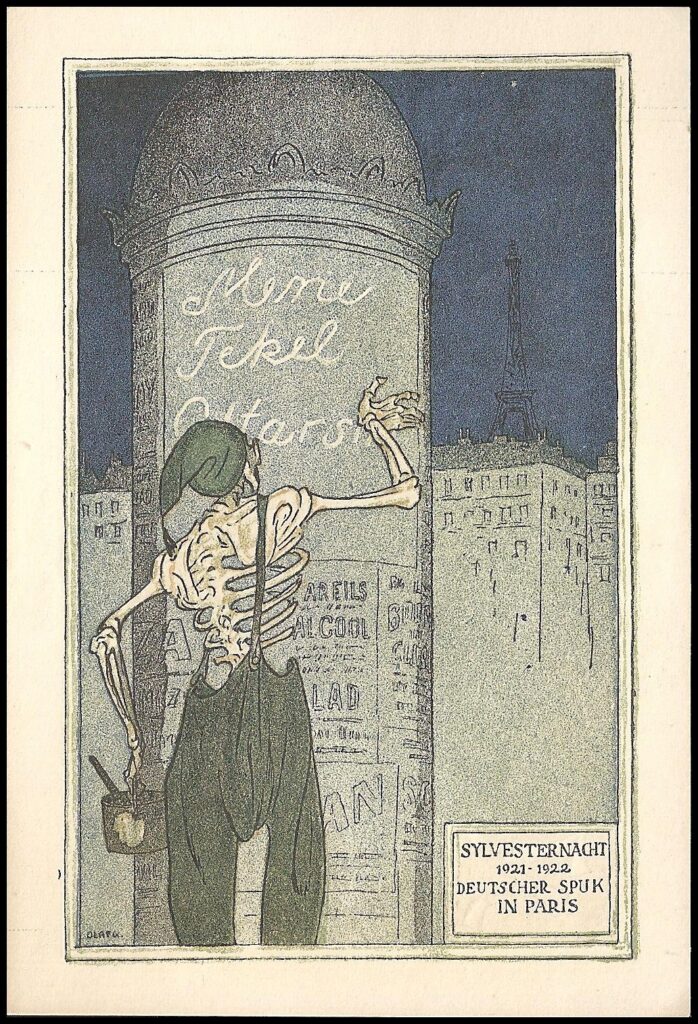
This intriguing image depicts a skeleton writing on an advertising column, also known as a Morris column. We see that the image is labeled Silvesternacht 1921-1922 and a German Spook in Paris. What is this all about?
Well, there’s a bit of religious history being served up as a prophetic message here. To begin though, we’ll start with the end of World War One. After the war the Paris Peace Conference created the Treaty of Versailles, which levied heavy war reparations against Germany for their part in the war, the German economy collapsed. As we know, this resulted in the lack of money, inflation took off and the emergence of Not-Geld, Emergency Money, such as this particular note here.
While all of Europe suffered during the war, and most even afterwards, the German economy was, due to the Treaty of Versailles, far worse than most of their neighbors, and the reparations were seemingly never ending. This in part also contributed to the Second World War, but that’s another topic. Suffice it to say that Germany was tired of paying reparations with no end in sight.
So what is Sylvesternacht? It’s the feast of Saint Sylvester, who served as the Pope from 314 – 335. His feast day just happens to be on New Year’s Eve, which the Germans still call Sylversternacht.
It has been a popular pastime to take part in fortune telling on Sylvesternacht. The type of fortune telling used was Molybdomancy, or the melting of lead. This is called Bleigießen in Germany, and involves melting bits of lead in a spoon and dropping them in water which rapidly cools the lead. Once cooled, the shape the lead took will tell what the future holds. There are many interpretations, such as heart shapes mean love, flowers indicate friendship, ball shapes mean luck will roll away while star shapes mean good luck will come your way.
Given that the process uses lead, whose fumes from melting can cause health hazards, and extensive handling can cause lead poisoning, the EU has outlawed Bleigießen kits from being sold since 2018. – But back to the past!
Here on this notgeld a German skeleton (spook) is writing a phrase on the column in Paris, the words being: Mene Tekel Upharsin which is a reference to the Bible, specifically the Book of Daniel, Chapter 5.
In Daniel we can learn of King Belshazzar’s feast, where the king had decided to use the vessels from the Holy Temple for his guests to drink wine from them. Well, this was a bad decision, and while they were imbibing, a hand appeared and wrote upon the wall these same words: Mene Tekel Upharsin. As with most of us today, those in attendance at the party did not know what the words meant, but were quite curious to find out, especially as they were written by a ghostly hand.
Failing to make any headway in deciphering the cryptic message, the king’s wife suggested that they send for Daniel, as he was a learned man. When Daniel arrived, he had to tell the king the less than welcome news that the message was not a good one.
Mene: God hath numbered thy kingdom and finished it.
Tekel: Thou art weighed in the balances, and art found wanting.
Upharsis: Thy kingdom is divided, and given to the Medes and Persians.
That night, the king was killed and the kingdom ceded to the Darius from Media.
So, knowing that bit of history, we can see that the German Spook is telling the French that their days are numbered, they are found wanting and that they will lose their country, all on Sylvesternacht, a time for fortune telling!
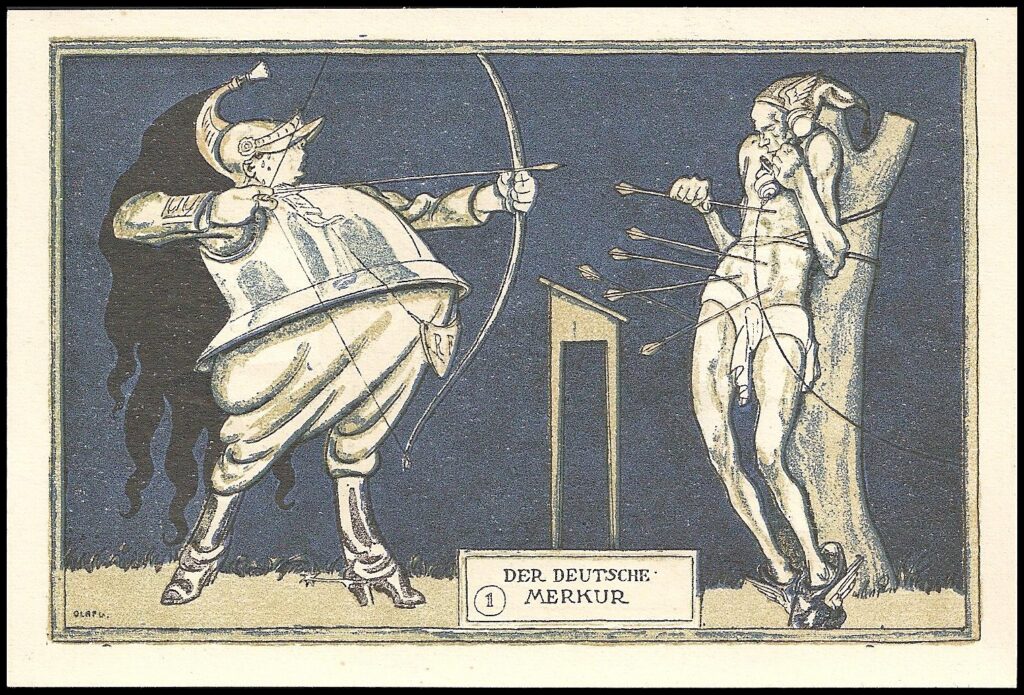
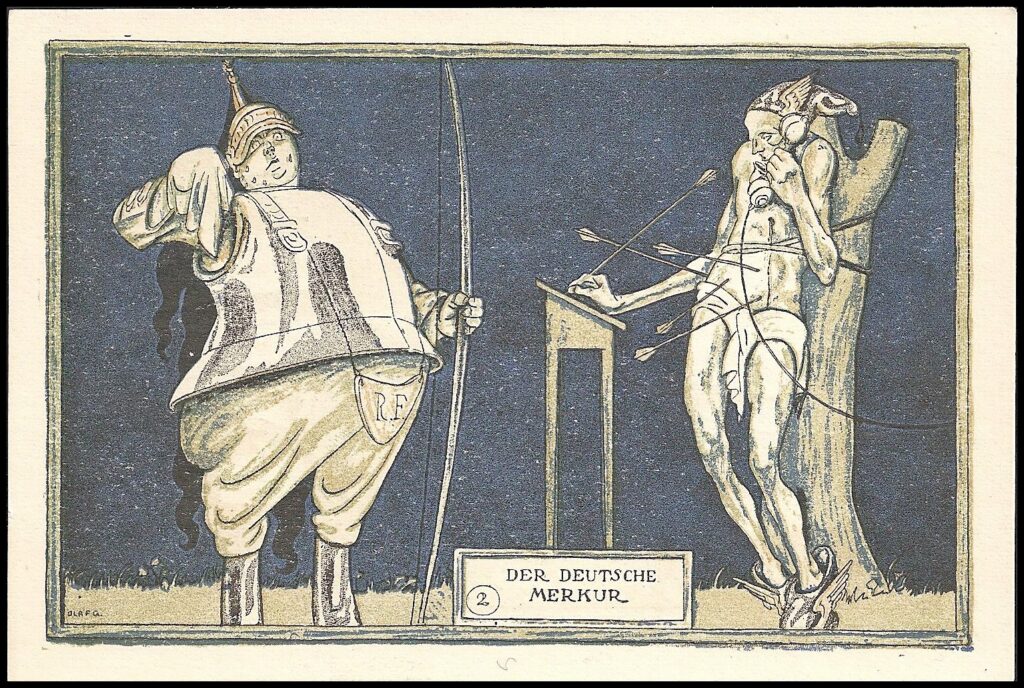
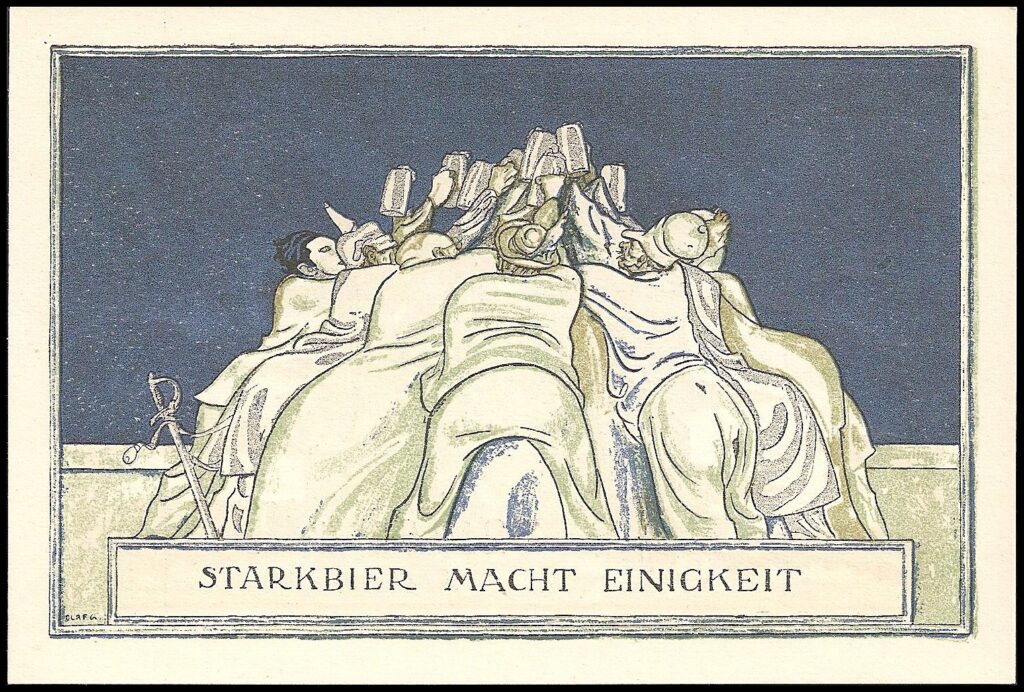
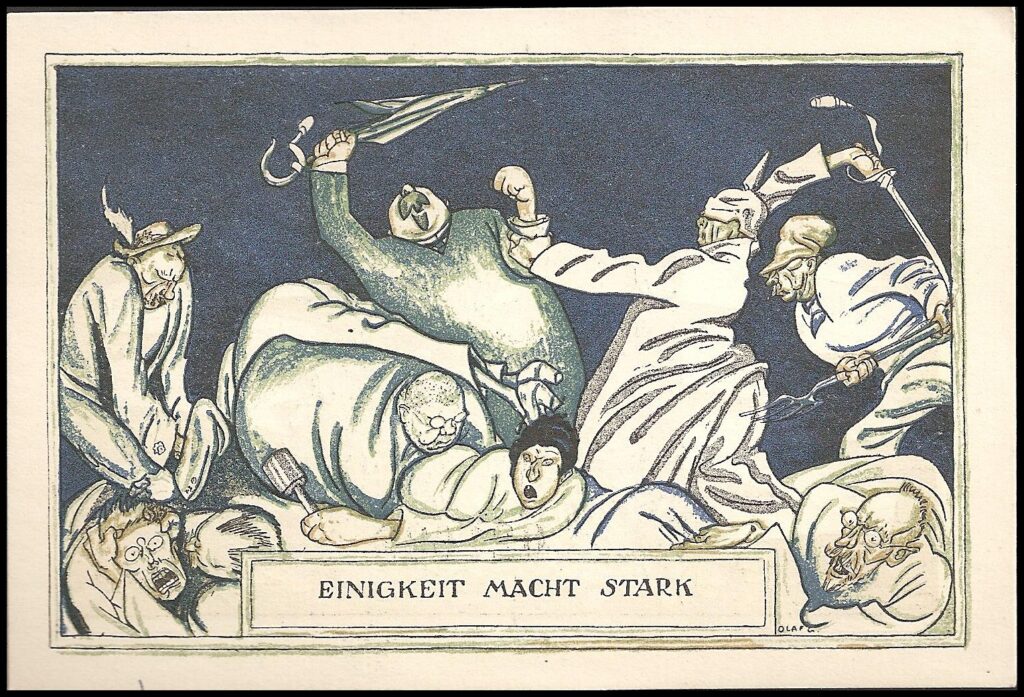
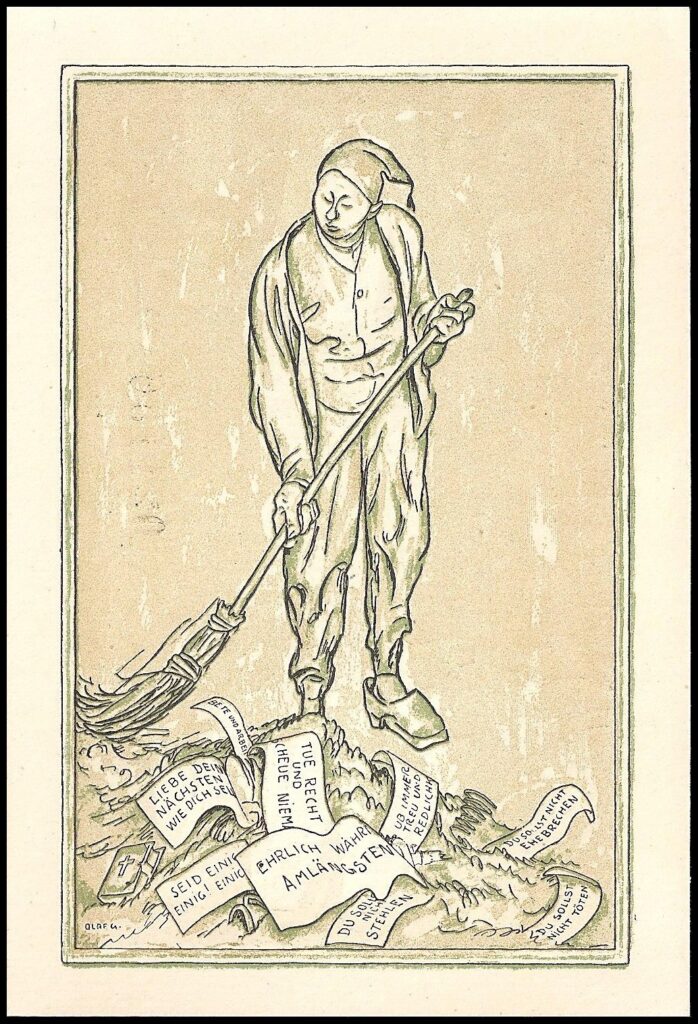
Tue Recht und sheue niem: Do right and do not disrespect.
Bete und arbeit: Pray and work.
Du sollst nicht ehebrechen: Thou shall not commit adultery.
üb immer treu und redlichkeit: Always practice faithfulness and honesty.
Liebe deinen nachsten wie dich selbst: Love thy neighbor as yourself.
Ehrlich währt am längsten: Honesty is the best policy.
Seid einig einig einig: Agree, agree, agree.
Du sollst nicht stehlen: Thou shalt not steal.
Du sollst nicht toten: Thou Shall not kill.
Along with a bible, a street-sweeper piles up biblical commandments and sayings that have been discarded.
These images show a rather raw glimpse into the psyche of some of the German people at the time. We see a nation that felt forced to concede to concessions they felt unfair, and that their unity was in shambles, and that the values of the people have been discarded. As a result, an ire was forged that would not be quelled easily.
Perhaps the best thing we can learn here is from what has been said so many times by so many people in so many ways: What we learn from the past is that we do not learn from the past.